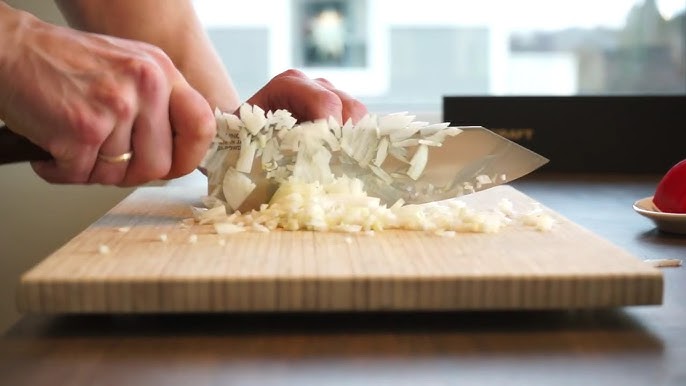As a culinary expert, the quality of your tools can significantly influence your culinary masterpieces. Among these tools, your knives play a crucial role, and keeping them impeccably sharp is essential. If you're searching for the top German knife sharpening stone, you're in the right spot. Renowned for their exceptional craftsmanship and durability, German knives require equally outstanding sharpening stones to maintain their sharp edges.
This detailed guide will take you through the realm of sharpening stones, emphasizing why chefs often prefer German options. Whether you're making a delicate sushi roll or carving a thick roast, having a sharp edge is vital. Lets discover how to keep your knives in top condition and why a German sharpening stone could be the perfect choice for your kitchen.

Why Opt for a German Sharpening Stone?
German craftsmanship is synonymous with quality and precision, a reputation that extends to their sharpening stones. Constructed to offer a balanced grit suitable for various knives, from robust chef's knives to finer paring blades, choosing a German stone guarantees you a reliable tool for maintaining your knives' sharpness, thus enhancing their lifespan and efficacy.
Additionally, German sharpening stones are tailored for professional kitchens. They are built to withstand constant use, providing durability and consistencykey attributes for chefs who depend on their knives daily. By investing in a premium German sharpening stone, youre not only extending the life of your knives but also ensuring that each cut is as accurate as the last.
Understanding Grit Sizes
The grit size of a sharpening stone is an essential aspect to consider. German sharpening stones usually offer a variety of grit options, allowing chefs to select the right stone for their specific requirements. Here's a brief summary:
- Coarse Grit (200-600): Ideal for fixing blades with nicks or for reshaping edges.
- Medium Grit (800-2000): Best for routine upkeep and sharpening dull knives.
- Fine Grit (3000-8000): Used for polishing and honing, providing the blade with a razor-sharp finish.
The right grit choice hinges on the state of your knife and the type of cutting tasks you usually perform. Having a mix of coarse, medium, and fine grit stones will satisfy all your sharpening needs.
Top Recommendations for German Sharpening Stones
When picking a sharpening stone, consider both the material and the brand. Here are some favorites among culinary professionals:
Whetstone by Wsthof
Renowned for their high-quality knives, Wsthof also provides a selection of whetstones that meet their strict standards. These stones offer a balanced grit and are exceptionally durable, making them a preferred choice among chefs.
Naniwa Chosera
Though not exclusively German, the Naniwa Chosera line is frequently recommended for use with German knives because of its excellent polishing qualities. These stones are ideal for chefs who seek perfection in every slice.
Shapton Glass Stone
This stone, another non-German brand, works exceptionally well with German knives. The Shapton Glass Stone provides consistent grit and durability. Its unique design and performance make it a staple in numerous professional kitchens.
Maintaining Your Sharpening Stone
To maximize the lifespan of your sharpening stone, proper maintenance is vital. Here are some helpful tips:
- Always soak water stones for at least 10 minutes before use.
- Clean the stone with water and a soft brush after each usage.
- Regularly flatten the stone to ensure even sharpening.
Proper care not only extends the life of your sharpening stone but also ensures consistent performance, which is crucial for maintaining your knives.

Frequently Asked Questions
What makes German sharpening stones the best?
German stones are celebrated for their durability and precision. They are engineered to deliver a balanced grit suitable for a wide range of knives, ensuring lasting sharpness and performance.
How often should I sharpen my knives?
The frequency of sharpening depends on usage. Professional chefs might sharpen their knives weekly, while home cooks typically do so monthly. Regular honing with a steel can help maintain the knife's edge between sharpenings.
Can I use German stones on other brands?
Definitely. German sharpening stones are versatile and can be effectively used on various knife brands, yielding excellent results regardless of the knife's origin.
For more tips on sharpening techniques, visit how to use a sharpening stone. Additionally, learn more about blade edge types and the benefits of different cuts by checking out multi-tools vs folding knives.
For further insights on knife care, explore these knife care tips. And to understand the historical significance of German knife-making, you might find this comprehensive history of German knives intriguing.


























